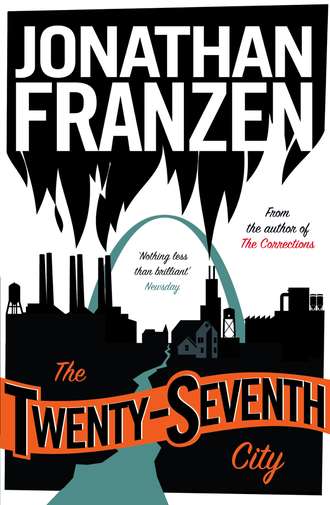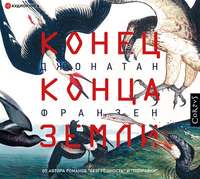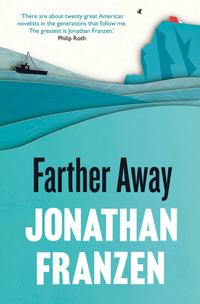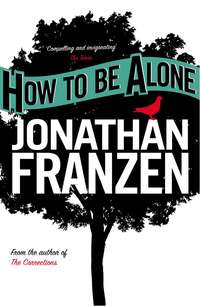
Полная версия
The Twenty-Seventh City
As she turned on the radio, which was always tuned to KSLX (“Information Radio”), Jack Strom was introducing today’s guest on the two-to-three segment of his afternoon talk show. The guest was Dr. Mickey McFarland. Physician. Professor. Disciple of Love … And author of the best-selling You and Only You. Barbara put an apron on.
“Doctor,” Jack Strom was saying, “in your latest book you describe what you call the Seven Stages of Cynicism—a kind of ladder that a person climbs down on to middle-age depression – and then you discuss ways to reverse the process. Now, I’m sure it’s struck many of your readers that all the examples you chose involved middle-aged men. This was obviously intentional on your part, so I wonder if you might tell us how you see women fitting into this pattern of cynicism, which I believe you once called the Challenge of the Eighties.”
“Jack,” McFarland rasped, “I’m glad you asked me that.”
Always, always, they were glad Jack had asked.
“As you may remember, when A Friend Indeed came out in ’79—as you may remember, it went to number one on the bestseller list—something I’ll never forget. Heh. I don’t know if anybody’s ever said this, but your first best-seller is like your first kid – you love it to death, you know, it’s always going to be your favorite. But anyway, as you may remember, in A Friend Indeed (in which, by the way, I spoke to the problem of feminine depression) I spoke there of the special role that women must play in meeting the Challenge of the Eighties.”
“And what was that role?”
“Jack, that role was a caring one.”
“A caring role.”
Jack Strom was hard on best-selling authors, shaming them with his extraordinarily mellifluous voice. He’d been hosting afternoon talk shows for as long as Barbara could remember, for twenty years easily, and his voice never changed. Did one’s face ever change?
“… I’m glad you asked me that, too, Jack, because it so happens that I think the Fifth Amendment’s protection of religious freedom is this country’s most precious resource. I think what we’re witnessing in these cults is a cry for love on a mass scale. I don’t know if you’ve ever thought about this before, but at the center of every, and I mean every, religion, there’s a doctrine of caring, be it Eastern, be it Western, I don’t care. And I think—I truly believe—that there’s a middle ground we’re all striving to reach together.”
Profound silence.
“Dr. Mickey Mc Far land, author of You and Only You. We’ll get to the phone lines right after this message.”
Mohnwirbel had stepped sideways into view in the back yard as he followed the ivy beds with his rake. There was enough ivy, enough property, to keep him raking all day long and the next day too. He’d had his finest hour a week ago, when photographers from House magazine had come to take pictures of the lawn and garden. It was the first time in eleven years that Barbara had seen Mohnwirbel agitated. He’d stood in the middle of the back yard like a dog amid angry bees, with an all-encompassing concern, menaced by squirrels that dropped sticks and trees that shed leaves.
“Hello, you’re on the air.”
Barbara measured butter.
“Dr. McFarland?”
“He’s listening. Go right ahead.”
“Doctor, my name is Sally.”
“… Do you have a question or comment for the doctor?”
“I’m listening, Sally.”
She opened the sugar bin. She was struck by the—what?—of white sugar. The futility. She applied the steel scoop.
In an average week, she read four books. At the library she catalogued four hundred of them. She went out once to her exercise class, and three times to play tennis. In an average week she made six breakfasts, packed five lunches, and cooked six dinners. She put a hundred miles on the car. She stared out windows for forty-five minutes. She ate lunch in restaurants three times, once with Audrey and various fractions of twice with Jill Montgomery, Bea Meisner, Lorri Wulkowicz (her last good college friend), Bev Wismer, Bunny Hutchinson, Marilyn Weber, Biz DeMann, Jane Replogle, sundry librarians and many occasionals. She spent six hours in retail stores, one hour in the shower. She slept fifty-one hours. She watched nine hours of television. She spoke with Betsy LeMaster on the phone two times. She spoke with Audrey 3.5 times. She spoke with other friends fourteen times altogether. The radio played all day long.
“Six three three, forty-nine hundred is our number. If you’re calling from Illinois it’s eight four two, eleven hundred. Hello, your question or comment for Dr. McFarland?”
With the spatula she shaved smears of creamed butter off the sides of the mixing bowl. She shuttled buttermilk and eggs from the refrigerator to the counter and cracked the eggs into the smallest of the nesting bowls. Tossing the shells in the sink, she thought of Martin. He wouldn’t have discarded the shells so quickly. He would have run his index finger around the inside to loosen the last, clinging globs of white. She saw him do it when he scrambled the eggs on Sundays.
In the first weeks of their marriage she’d dropped a twice-read newspaper into a wastebasket and he’d retrieved it. “These are useful,” he said.
He never used them. He turned off the hot water while he soaped his hands. He put bricks in the toilet tank. The old house on Algonquin Place was lit largely by 40-watt bulbs. He burned the barbecue charcoal twice. If she threw out old Time magazines he sulked or raged. He pocketed matchbooks from restaurant ashtrays. When he watered the grass, he laid leaky hose joints over shrubs, not concrete, so the shrubs would get a little drink.
He conserved. But his conservatism was personal, perverse almost. When he was trying to keep his workers out of the unions twenty years ago, the city press could hardly believe that Barbara’s father had decided to represent him. At the time, everyone from the Teamsters to the roofers was striking Martin, and strikes were spiraling out into sympathetic businesses. Normally her father would never have touched a case like this (one of his specialties was workmen’s compensation), but it was difficult to say no to a company president who marched into paneled offices in boondockers and khaki work pants. Martin’s issue with the unions was personal, not ideological. He seemed astonished to be the cause of general havoc, and seemed to think it only natural when, with her father’s help, he won the suit. And when he turned up at her parents’ Fourth of July party, Barbara noticed him.
She’d just graduated from college, and she had a fellowship to study physics at Washington U. In less than a year, though, she’d given it up and married Martin. She didn’t need science to set her apart, not when she had Martin Probst. She liked to see him at symphony intermissions chatting with her old Mary Institute acquaintances. (“You see the trombones?” he’d ask. “I love trombones.”) She liked to see him rock-and-roll dancing with her college friends. At charity balls he searched out the practicing engineers and talked about box girders and revetments and concrete piles while chiffon and silk charmeuse swept insubstantially by. She liked to be around him.
One Sunday afternoon about three years after they were married, he took Barbara on a tour of the Arch, which hadn’t opened to the public yet. He unlocked two gates, a metal door, another gate, another door, and stopped by a galvanized-iron control box. He was moving with a swagger that Barbara didn’t recognize, and casting disdainful glances at the work. He threw switches by the handful. In the receding triangular space above them, lights went up on stairways and cables and the inverted T’s that anchored the tram tracks to the walls. Martin didn’t look at her. He might have been an antebellum Southern gentleman losing his sweetness in a review of his slaves. Pulling hard on a railing, as if daring it to snap, he started up the stairs. She followed, hating him somewhat. She smelled cold grease, cold welds, thirsty concrete. Echoes lingered, buzzing, in the thin iron steps. When the stairs brought her close to the walls she ran her hand over the hard carbon steel, over drips of set concrete, over code numbers inscribed by hand, and saw a blue luster hiding in the burrs and ripples. Abruptly the stairway veered to the opposite side of the tram tracks, and veered back, adjusting to dreadful alterations of the vertical.
“Do you collect if I fall here?”
“Don’t fall,” he said curtly. It was an order, but she was happy to comply. Diagonal patterns—the crossties and trusses for the tracks, the guys and brackets for the stairs—were repeated at one level and then slowly gave way, element by element, to patterns more cramped and twisted. Looking down (accidentally) she could see some of the flights she’d climbed, but not nearly all of them. They zigzagged around like the spoor of a rectilinearity driven crazy by catenary logic. The colors were primitive, the rustproofing orange, the plastic wrappings a baby blue, the wirenuts red and yellow, the conduit green. Farther up, as the pace of the curve increased, she climbed long spiral staircases connected, top to bottom, by narrow gangways with flimsy rods for railings. She might have fallen if she’d stopped to think. She followed Martin. There was metal everywhere, its molten origin apparent in this sealed metallic enclosure, in the literal chill: she could see the steel’s enslavement to form. Threaded, it bit itself in a death grip, bit indefinitely. Gussets like the arms of frozen courtiers held up struts, and the struts held up the gangways, and the gangways Martin. In the past his power had been a reputation, a thing for her to play with. Now, at closer range, from a greater remove (the truth is unfamiliar), she loved him very much.
Blue daylight appeared. They stepped out into the sunlit observation room. And after she’d appreciated the view east and west, after she’d selected a car driving by the Old Courthouse, a red station wagon, and followed its progress through the empty downtown streets, watched it popping in and out between buildings, and caught glimpses of it (she believed) on Olive Street all the way out to Grand Avenue; after she’d jumped on the floor to confirm its solidity; after she’d sat up on the window ledge, her back to the sun and her thighs on warm metal, after she’d kicked off her shoes and Martin had stood between her legs and kissed her: after she’d protested that people could see and he’d assured her that they couldn’t, he unbuttoned her jeans and pulled them down. Then he did it to her on the floor. There were rows of chevrons on the cold steel plates. He mashed and maneuvered her while she tried again and again to sit up. Her shoulders, in spasms, resisted touching down. Did she know this man? She was almost ecstatic. The best thing was, he never smiled.
“Mickey McFarland, author of You and Only You. Doctor, we’re glad you could stop by this afternoon, I’m sure you have a busy schedule—”
“Oh, KSLX has a special place in my heart.”
“We appreciate your coming in. I’m Jack Strom. From three to four I’ll be talking to Dr. Ernest Quitschak, a seismologist who’s going to tell us about three of the biggest earthquakes in American history and the next big earthquake, which could happen any – day—now, right here in Missouri, KSLX-Radio, Saint Louis, it’s – three o’clock.”
Bong.
She slid the three pans onto the top rack of the oven, set the timer, and slumped into a chair. She was bushed. Her ears rang. Mohnwirbel had gone off someplace, leaving the rake in the ivy, tines down.
In New Delhi today Indian Prime Minister Rajiv Gandhi was among hundreds of thousands of—
At the news of Mrs. Gandhi’s death on Monday Barbara had thought immediately of Jammu, the police chief. Jammu patterned her peremptory glamour so clearly on Mrs. Gandhi’s that Barbara was sure the assassination would leave her harrowed. But when Jammu appeared on KSLX-TV last night to discuss ramifications of the murder, she spoke with her usual poise. “It’s amazing the woman survived as long as she did. She didn’t lack enemies.” The cold smile she gave the interviewer disgusted Barbara.
“You can’t judge from this,” Martin said. “Who knows what she thinks in private.”
Yes, there was no denying no one knew. Barbara would even grant the possibility that Martin, in private, now that his hair was turning gray, feared death. But she would never know. The guiding principle of Martin’s personality, the sum of his interior existence, was the desire to be left alone. If all those years he’d sought attention, even novelty, and if he still relished them, then that was because attention proved him different and solitude begins in difference.
She remembered the election night party they’d had in their house on Algonquin Place, on the night Humphrey lost. The Animals raging in the living room, the undergraduates dancing in the front hall. Barbara had been upstairs checking on Luisa. At the bottom of the stairs she saw Martin talking with Biz DeMann’s young brother-in-law Andrew, a plump law-school student in blazer and tortoiseshell glasses.
“Harvard,” Martin was saying. “… Harvard. Somehow I thought it was a restaurant.”
Young DeMann: “I can’t believe you haven’t heard of it.”
“Listen, Andrew.” Martin put his arm around Andrew’s shoulders and drew him close. “There’s something I’ve always wondered. Maybe you can help me. What does alma mater mean?”
“I don’t know exactly. Something like Our Mother.”
Martin frowned. “Whose mother?” He was doing his dumb act.
“Metaphorically. Like: Harvard is my alma mater.”
“I see. It’s your Our Mother.”
Andrew smiled indulgently. “Sure. Why not.”
“Why not?” Martin took Andrew by the collar and tossed him against the front door. “Because it means nurturing mother, you asshole!”
Barbara, turning white, dragged Martin into the dining room. “Martin, Martin, Martin—”
“I ask the kid where he went to school,” he told her in a caustic whisper. “I’m pretty sure he went to Harvard, I’m just being polite. He tells me: ‘Oh, a little school near Boston.’” He pulled away. “Lemme go kick his head.”
“He’s a guest, Martin.”
She dragged him out to the back patio and sat him down. She realized he wasn’t drunk at all. “All these people,” he said. “All these people, worrying about the poor. They don’t have the faintest idea what it’s like to be poor … All these people studying. It makes me uncomfortable. It seems so … so small. I mean, how do they justify themselves? All these people. All these people. They’ve never in their lives had to work a job they didn’t like.”
All these people were Barbara’s people.
If she stopped trying, she and Martin wouldn’t see them anymore.
She stopped. The parties stopped. She stayed at home; she got a sinus infection. Men were circling the moon, and she sat and rested in a kitchen chair, wishing she could taste. It was the worst infection of her life. In the shower she licked the soap off her lips and found it sweet, like one of the more congenial poisons. Cooking was a chemistry lab. Heated beef turned gray, heated chicken white. Bread had low tensile strength. A liquid could be extracted from an orange, it was volume in a glass, it was 150 milliliters.
The infection continued out of February and into March, but spring was just a change in the light, a dampening of the cold, nothing more. She saw a doctor, who told her it was only viruses, she needed to sleep a lot and let it run its course. Eventually she could breathe freely, but she still couldn’t taste. She started smoking again. The smoke was frosty and almost chewable, and the pain in her throat, divorced from flavor, had an electrical quality, like a leakage of current. Was it possible that people tasted what they spoke? It was possible. Words dwelt in her skull like hammerheads, falling around on their rigid claws. Martin blamed her. “What’s wrong with you?” Go to bell, I have a cold. “You should try to get some sleep.” Go to bell. A steak could be bent. Radishes couldn’t. Every morning she licked at the soap, always hoping, and then, in April, something gave and she realized in her closet that she was smelling No-Moth. It was exactly as she remembered it. But now with each taste she rediscovered there came a sense of private ownership. Tastes and smells no longer seemed like communal stocks of which each person partook according to need and predisposition. They seemed like property. She was reading Sartre, and he hit her like a ton of bricks. She felt wild. She had insides, and at the time they weren’t lonely places. Ask Martin about those years, and he’d tell you a different story. Hers was simple: she’d started to live for herself, not both of them. She’d noticed that she had a daughter.
“And how is this different from the San Andreas fault?”
“The San Andreas is on the edge of the continental plate – plates, of course, are the rigid pieces of the earth’s crust that make up the continents and ocean floors …”
The oven was warming the kitchen, but Barbara didn’t smell cake, only the heat of her sinuses. The dishes seemed a creation of the sink, which heaved them onto the counter, weird saucers, wooden spoons. In December more people from House magazine, including a writer named John Nissing whom Barbara had so far met only by telephone, would be coming to shoot the house’s interior. They should have come today instead, she thought, and caught the house au naturel, caught Barbara in her chair, bowing in confusion and looking at the flour-dusted wrists in her lap. In her dream last night Luisa had had these hands, these rings, these wrinkles.
When Audrey’s younger daughter Mara was Luisa’s age she’d already run away from home three times. She’d been expelled from Mary Institute and arrested for shoplifting and possession. Concerned relatives, namely Barbara and her father, agreed that the Ripley household was (to say the least) doing Mara little good, and Barbara overrode Martin’s objections and offered to take the girl in until she cooled off or got a diploma. Mara had always, to Barbara’s discomfiture, looked up to her and liked her, as the token grownup she could stand. She accepted the invitation, and Barbara tried to be understanding and be a good foster mother, and repair some of the damage. But after two months, on a Sunday in March, she and Martin returned from a brunch and found Luisa, who was ten, sitting in the kitchen with a frown on her face. Her indirection was elaborate.
“Sometimes,” she said, “I think about rooms we don’t use?” She felt sorry for the unused rooms. And all the things in them? Like in the basement. And on the third floor? It was funny how she never went up there? Did Mommy ever go up there? Wasn’t there an old sewing machine with pedals? And lots of things of Daddy’s? And an old sofa, sort of?
Barbara calmly cored an apple for her and sent Martin up to the third floor, where Mara (who was supposedly “outside someplace”) and a boy her age were hastily dressing. Martin said Mara had to go, and Barbara agreed. She was chastened to discover that only Luisa mattered to her, that a scratch on her daughter’s psyche worried her more than a festering hole in Mara’s. Did Luisa know the suitcases in the front hall were the direct result of her testimony? Had she made a connection between having sex and getting thrown out? Did she know it was done on her behalf? A very peculiar sort of distrust arose in Barbara: how much are we really keeping from her? A lot, or only a little? She wished she’d been granted a mind unable to perceive so clearly the mathematics of Luisa’s growth, or a body that could have given her more than one child, anything to relieve the terrible specificity of her conscience. If only it didn’t matter exactly what became of Luisa, and what she became, and how it happened, through what fault and what virtues of Barbara’s. If only she were like Audrey, to whom things happened unaccountably. Or like Martin, who didn’t seem to care.
Upstairs she heard footsteps. The thump of books. Luisa had come in through the front door and gone straight to her room.
Three weeks passed. It was the day before Thanksgiving, and the high school was in turmoil. After fifth hour the clots of pep, the organizers and combatants, began to rove the halls at will. They carried orange and black threats, threw orange and black confetti, stapled orange and black crepe paper to the ceiling tiles. It was Pep Wednesday, the day before the Statesmen played the Kirkwood Pioneers. At three o’clock the Rally would be held, and then at eight o’clock the Bonfire, when five hundred of the faithful would gather at Moss Field to witness the burning, in effigy, of Kirk E. Wood. This true Pioneer would be roasted, tossing in a danse macabre, while smoke and cheers drove the school spirit to painful heights for tomorrow. Tomorrow was Turkey Day. Tomorrow was the day.
Mr. Sonnenfeld shut the door. He cast his pinkened eyes on the class before him. He stuck out his lower lip and blew air through the thin hair on his forehead. “Forty-five minutes to go,” he said. “Be glad when it’s all over.”
The class did not look at him. They heard his words in mute boredom, as a humbling judgment on them. Yes, sir, it’s just like you say. Fluorescent light filmed their tired hair, tired jeans, tired purses. They were a group as gray as the cold clouds outside. They came because Sonnenfeld would not fail anyone who attended class regularly. The boy next to Luisa in the back row was slouched so low in his seat that his knees butted the underside of his desk. His name was Archie. He was black. He was drawing on his desk with a pencil, expanding a solid gray dot into a larger dot.
Luisa rubbed the back of her hand across her nostrils. Whenever she did this she could smell Duane. Washing masked the smell, but not for long. He came from inside her. More and more his smoky human smell lodged even in her nostrils; in her brain.
Her mother had said: “What do you keep doing that for?”
“Doing what?” She’d dropped her hand, locking it between her legs. She saw how people accidentally develop disgusting nervous habits.
“Smelling your hand like that.”
“I’m—not.”
Mr. Sonnenfeld moistened his fingertips and walked up and down the aisles distributing copies of poems. “I’ve selected four poems to introduce you to the work of William Carlos Williams,” he said. Luisa took her copies but was careful not to show immediate interest in them. She was only here because this course fit into her unruly schedule this quarter. She felt conspicuous. One row over, in the corner, a girl named Janice Jones was watching her. Janice was wearing loose jeans with no belt, a biker’s jacket, and an embroidered Indian shirt with the top four buttons unbuttoned. She had tiny, stoned-looking eyes. Her name was scrawled on lockers and walls around the school, JANIS JONES GIVES GOOD HEAD, JJ = JOBS. Every day she stared at Luisa for no apparent reason; no malice when their eyes met, no smiles, no connection.
“… I think when you look at these poems you’ll see a lot of similarities with Ezra Pound and the other imagists we started with.” Sonnenfeld’s collar bit deeply into the roll of fat around his neck as he handed the mimeographs across two empty desks to Janice Jones. He nearly lost his balance. Archie sniffed. He seemed to have seen it without looking up.
“Now, first of all, has anyone ever read anything by Williams?” Sonnenfeld hopped backwards and sat on his desk. He pulled up his pants legs to relieve the stretch.
White pages turned. No one answered. This was the only class Luisa had in which she hardly knew anyone. People she knew would have said something.
“Does anyone know what Williams did for a living?”
“He’s a faggot,” Archie muttered.
“Archie?”
Continuing to draw his dot, Archie smiled and did not elaborate. Trouble had been brewing between him and Sonnenfeld since the quarter started two weeks ago, and the mood was dangerous today. Usually Archie was silent in class. He was loud in the halls, though, where all the black kids lost their shyness. They scared Luisa. They didn’t like her, and she felt she’d never be able to relax enough to indicate neutrality, to give them even a small sign that she didn’t necessarily dislike them.








